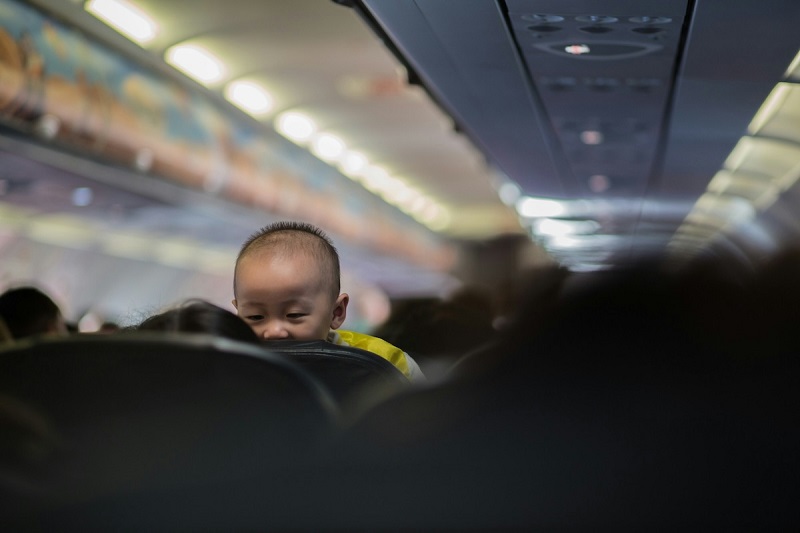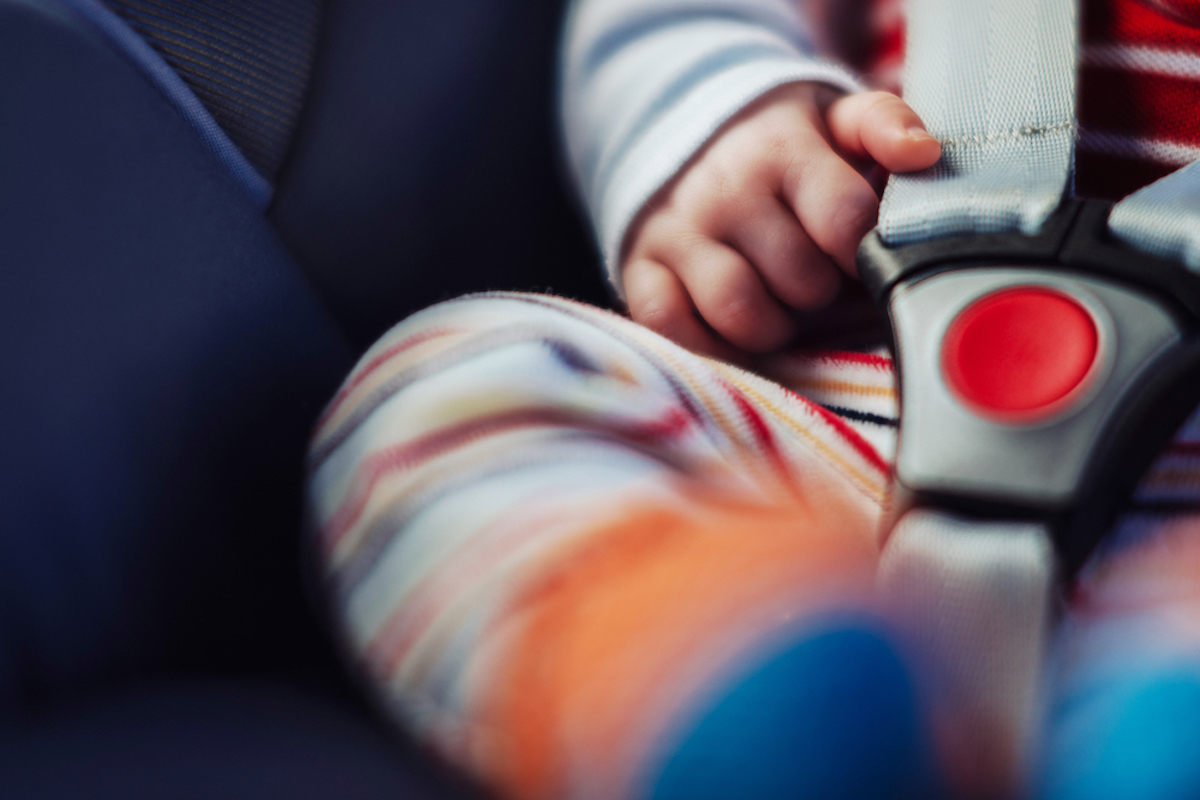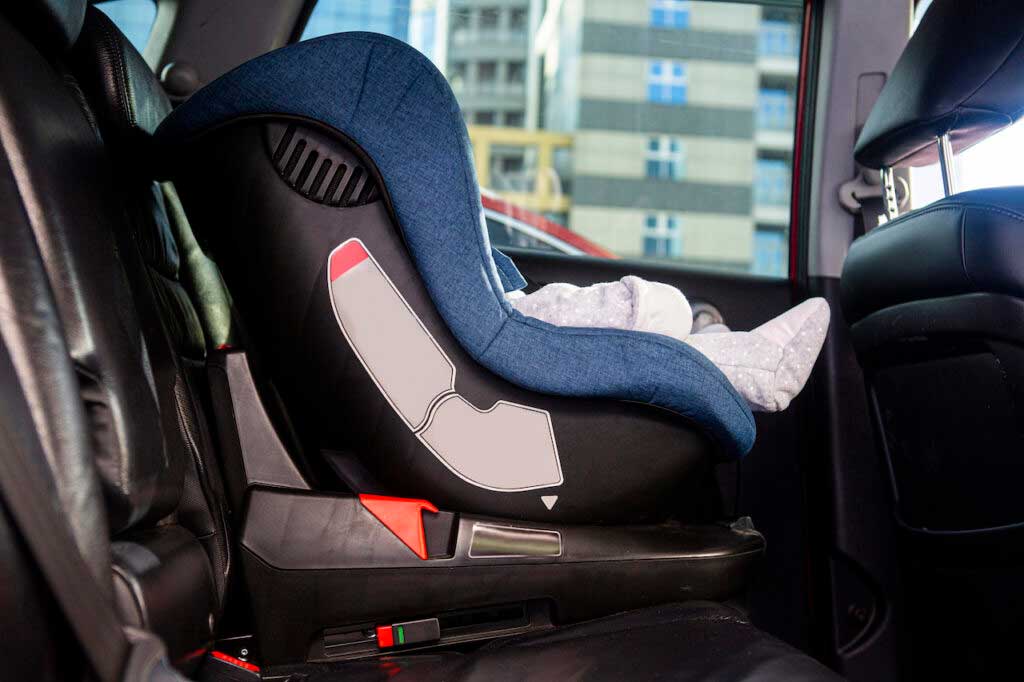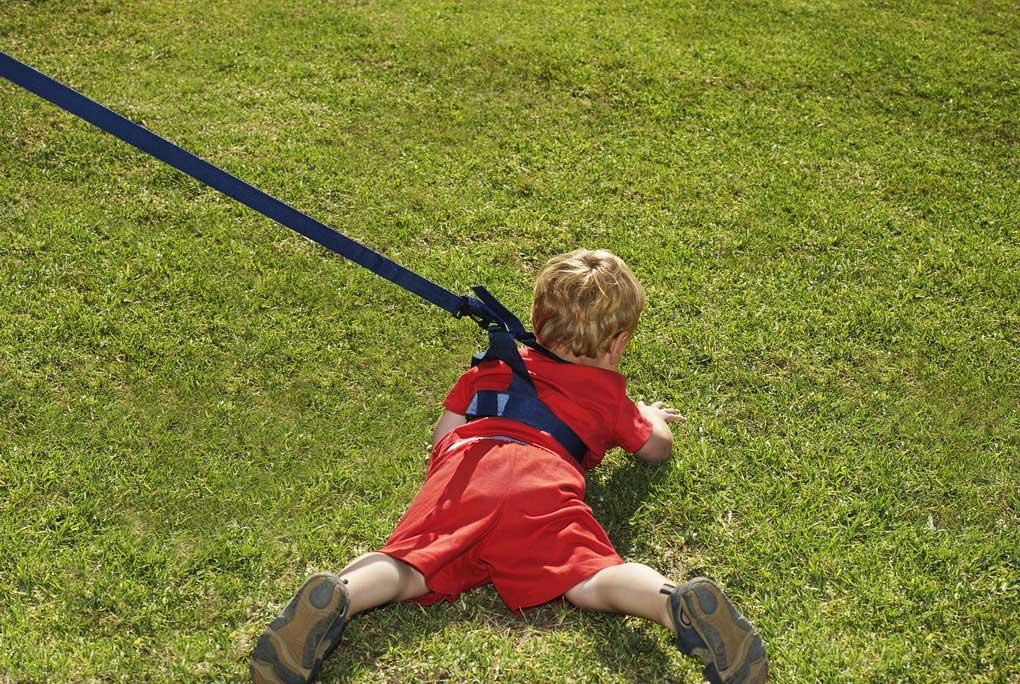The American Academy of Pediatrics says that you should put kids under 40 pounds into a car seat on airplanes. Is there real data to back this up? I can’t imagine strapping my 3.5-year-old into a car seat for an entire ride. And if this is true, why do airlines allow you to fly with a lap infant?
—Just Tell Me Why
There are a couple of ways to answer this question. One is with theory, the other is with data. We can talk about both.
I should say first: the AAP guidelines contradict airplane rules, which is important context here. The airlines will let you fly with a lap infant, or with a child without a car seat. They accommodate car seats if you’ve bought a ticket but certainly do not require them. The view of the AAP is that you should always buy a seat for a child, even if they are young enough to be a lap infant, and that you should use a car seat until 40 pounds, which for most kids would be in the age range of 4 to 6.

The fact is that very few people are doing this on airplanes, period. My sense is that the AAP is aiming to change that behavior.
In theory, the reason for this is that a car seat will keep an infant or child better restrained than either a parent’s lap or a simple seatbelt. In theory, if the plane encounters serious turbulence, an infant who is held by a parent could fall or a child who has wiggled out of their seatbelt could be hurt. In addition, if there were a survivable airplane crash, a child might be more likely to survive in a car seat.
Let’s look at the numbers on those.
To begin: turbulence. In the data, injuries to children on airplanes are rare. To see that, we can look at this comprehensive paper, which reviewed all in-flight medical events from January 2009 to January 2014 that were reported to an airline medical event center. This center covers about 35% of commercial flights, so about 1 billion person-flights per year, or 5 billion over the time period of the study. Based on FAA estimates, we’d expect about 2% of these to be children under 4 — so, about 100 million flights.
In this 100 million child flights, there were 400 in-flight injuries, of which about 40% were burns (from the food service, presumably), and others were falls, object trauma, etc. This is an overall rate of 1 in 250,000. This number is very small. If you flew once every day, it would take 684 years to expect one incident.
That’s injuries. There is also the question of what happens in a crash. This is even harder to answer, because most airplane crashes are not survivable. But a complicated JAMA Pediatrics paper went through a series of calculations, under varying assumptions, and suggested that 0.4 child deaths per year might be prevented by requiring all lap infants to have a seat purchased for them and use a car seat (this paper did not consider older children).
The JAMA paper makes an additional very important point. The AAP guidelines would require families to purchase additional tickets for lap infants. For some families, perhaps on the margin between flying and driving, this could cause them to switch to a car. Cars are much more dangerous than airplanes. The paper suggests that if 5% to 10% of families switched to driving, then we would expect more total deaths as a result of the policy.
If you want to buy a seat for your lap infant, or bring a car seat for an older child, by all means do so. But the additional protection — from a numbers standpoint — is extremely small.
Community Guidelines















Log in
Emily is there any data on the child airplane safety harnesses? I’ve often wondered about those.
The CARES harness is FAA approved, I’ve used it with my daughter from the age of about 2 (infant car seat before that) and it worked great for us, super quick and easy to use and kid was happy in it. I was really surprised not to see it mentioned in this article!
I think this leaves out important considerations, one safety-related.
The first is that many families will need a carseat at their destination (unless maybe they’re visiting family with an extra). You cannot trust the airlines to safely check a carseat. Watch them toss luggage up into the air onto the conveyor belt. The only way they are considered safe is if they are packed in their original packaging. I’ve never seen anyone do that. Also they could be lost. A lot of luggage is. If you try to rent one with a rental car, you will be ushered into a dirty storage room and given options that may not work for your child, that may reek of smoke, that you may not know how to install, etc. Bringing your own on the plane assures safety and saves time and stress in that way.
Another consideration is a familiar place to nap on the plane. One time we had a very overtired toddler on a delayed flight. He needed to sleep, but couldn’t do it with the blue lights on even after we turned off our seat lights, all the noise, unfamiliar place, etc. Nothing we did worked to sooth him. Finally in desperation we wrestled him into his carseat. It worked like a thundershirt. He was asleep within 90 seconds, to the relief of everyone within earshot.
Bringing seats on the plane is not that big of a deal. We did it even when we had 2 kids in carseats. It’s unarguably safer during turbulence, and saves stress in various ways. Lap children should not be legal. I just don’t buy the argument that some people might be pushed to drive by the inconvenience. Flying is already so miserable that people only do it if they have to. Why not at least keep your kids safe during the misery?
Because for many it is cost prohibitive.
Emily, what did you do for your kids? Did Penelope and Finn fly in car seats until they were 40 lbs?
Dang, I wish I’d have had this article to refer to when my kids were small. We fly a LOT (ever since my kids were infants, they’re 10 and 12 now), and a few very sanctimonious moms would always tell me if I couldn’t afford a seat for my lap infant it was safer for me to drive. I always argued that point because the statistics just didn’t match up, but they never believed me. I think they’d actually believe YOU!
I like the seat belt extenders used on European flights and flights operated by European companies. They are way stricter about that, so much so that sometimes it conflicts with a squirmy child resulting in lots of tears, though.
I recently heard that checking a car seat is akin to that car seat being in a minor car accident, which makes car seats no longer effective. I think the rationale is that the seats get tossed around with luggage with the presumed same force of a car accident. Any data behind this claim?
When we flew with kids we aimed to have them in the carseat if possible. Less so for safety and moreso to encourage good behavior. Our kids know how to behave and sleep while in a car seat. As soon as they sit on our lap, they’re all wiggly and cannot sleep.
Be prepared to argue with a lot of airport personnel about how you are allowed to have a car seat and if it doesn’t fit, they have to reseat you to a seat it will fit in. While coming from a point of safety, The Car Seat Lady (https://thecarseatlady.com/before-you-fly-know-your-rights) has a bunch of info and tips about the rules airlines like to pretend don’t exist. (They’re generally fine with infant car seats but hate the bulky ones for toddlers/little kids.) I carried printed copies of these various rights with me, and yes, I did need them. While that part was a hassle, having quiet, well-behaved kids on the flight was well worth it.
We’ve never had that issue with our Cosco Scenera Next with the flight crews on multiple domestic and international flights.
OMG yes. When we were in this phase I carried printouts of the FAA policy and the policies of the individual airline. I had to have quite an argument once with a flight attendant who tried to deny me the carseat. I wrote a letter of complaint and got hundreds of dollars in response. Some flight attendants need to be educated on this.
This is great, but in addition to data and theory, we need to also discuss practicality. The US does not allow domestic airlines to use seatbelt extenders. All over Europe, airplanes give parents a complimentary attachment to their own seatbelt so that a lap child can also be buckled in. Additionally, US domestic airlines all have different rules for what particular seats car seats are allowed to be installed in (sometimes only windows, sometimes not blocking the egress of another passenger, sometimes not last rows, etc.). Even when I paid for a seat for my under 2 year old and paid to sit together, we experienced multiple occasions where a new plane layout was announced at the last minute and then we are either 1. not sitting together (and therefore I have to hold my infant) or 2. reassigned different seats where I cannot install a car seat (and therefore have to hold my infant). The US needs to enact stronger protections for families and get on board with the infant seatbelt extenders that they use in Europe AND make it more practical to fly as a family in America. It is not practical to suggest parents use car seats on US airlines and then make it nearly impossible to actually do so.
That run-around makes it such a hassle to fly with car seats! That crap they pulled is in direct contrast to FAA regulation. Airlines gave us similar hassle but backed down when I cited FAA regulation. Unfortunately it’s often easier to give in and check the carseat.